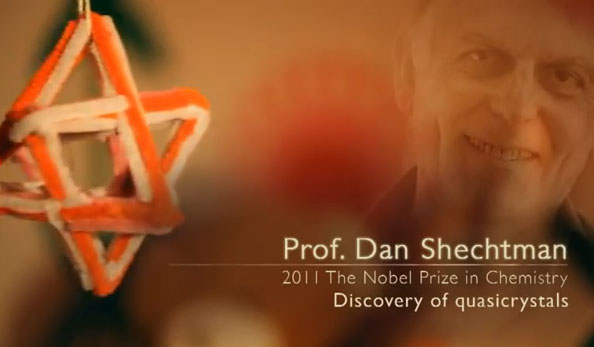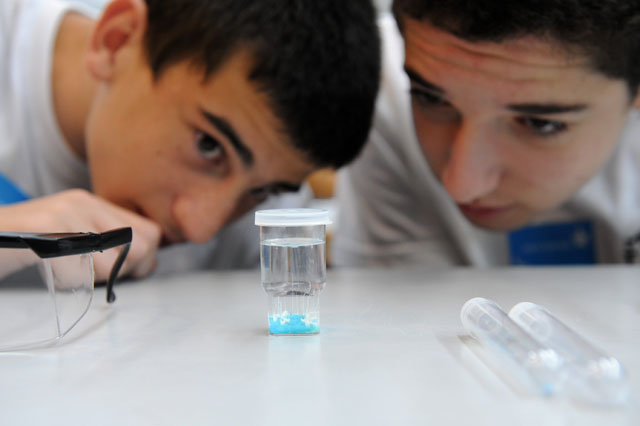
Dear professor, how do you discover quasicrystals?
I am a professor at Haifa University. At first I studied mechanical engineering science. In 1972, I came to the U.S. I did Postdoctoral fellows (PDFs) at United States National Research Council, worked in "The space cosmic laboratory” at Wright-Patterson Air Force Base, Ohio. My 3-year
study of structure and physical metallurgy of titanium aluminides was carried out here. In 1981, I arrived at the U.S to do a research on solid metal alloy, leading to discovering the premise to open new aspects of quasicrystals.
How was your invention applied in reality?
The application of quasicrystals is extremely limited. My invention has helped some researchers create similar quasicrystals via finding materials with thermal conductivity and low electrical conductivity while having high structural stability. Quasicrystals can be found in nature. The material is made from Quasicrystals can be widely used in the creation of durable steel used for sophisticated equipment, made of insulation materials without heat and electricity. Besides, it can create materials as pans.
In my opinion, this is not a small application, professor!. You spent several difficult years when their colleagues do not recognize his invention. What did you do during that time?
I discovered quasicrystals and published my research. But, there were not many people who agreed with me. Even, the leader of my team asked me to announce my withdrawal. I defended my invention instead of withdrawing. She told me if I did, I would have to get out of the group. And I got out of the team. But I was not discouraged. I continued to work in scientific research.

Your country has a lot of Nobel Prize winning scientists. Professor, what is the condition for Israeli scientific success?
I think because we are enjoyed an advanced education with the freedom of thoughts and creation. I think these are the most important conditions. In addition, the government strongly supports higher education universities in the country. The government stood aside and did not need to tell the
scientists what to do.
Have Israeli scientists been pressured to earn money or not fully funded by the government for science?
The Government has encouraged and facilitated scientists through a Science Fund. The fund has been managed by a management board and scientists will apply for funding to conduct their research. After having scientific works put into application, they will get 50% of the value of their work. In my Haifa University, many scientists have become wealthy thanks to the work of their scientific research, especially the research and manufacture of treatment drugs.
As a scientist, you must devote time and energy to this passion for science. So when do you spend time on caring family?
Thanks to my wife, a psychology scientist (PhD psychology). When our children were young, she always tried to spend the time to go home at noon to prepare lunch for the children. But as they grew up a bit more, we do not need to worry.
Which projects have you cherished in the future?
(Smiling). In the near future I will surely receive journalists like you here. In more distant future, I will continue my research and more importantly, transfer my knowledge and passion of the science for young people.

I want to ask a delicate question which probably many people have asked you, what will you spend the amount of the Nobel Prize’s award on?
I will invest in education for grandchildren. A few children are in the U.S., but several children still stay in Israel. I will use the award to help them with the best learning conditions. Remember that: education investment is the best one. I think a country who wants to develop, not only Israel, or
Vietnam, but also all other countries, we must develop a strong high-tech industry. We must export petrochemical products rather than crude oil, must move from cheap labor to higher-level employees to train more engineers as possible, and encourage dynamic and initiative youth to establish high technology companies.